
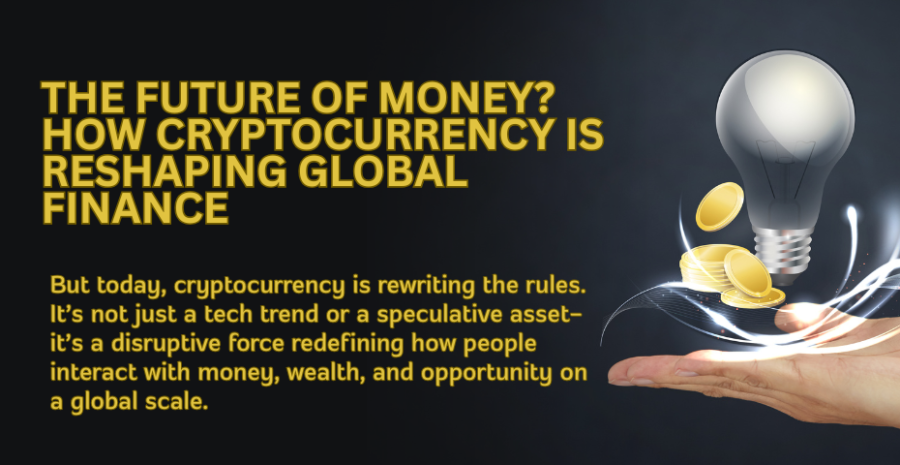
The world of money is undergoing a profound transformation. For centuries, we've relied on centralized systems controlled by governments and financial institutions—banks, treasuries, and payment processors—dictating the flow, access, and value of money.
But today, cryptocurrency is rewriting the rules. It’s not just a tech trend or a speculative asset—it’s a disruptive force redefining how people interact with money, wealth, and opportunity on a global scale. From Bitcoin’s launch in 2009 to today’s bustling ecosystem of thousands of coins and tokens, crypto has evolved from an experiment to a movement.
And it’s moving fast. What started as an anti-establishment protest against fiat inflation has now become a legitimate financial instrument adopted by billionaires, businesses, and even entire governments. In countries battling hyperinflation, crypto is a lifeline. In developing nations, it’s enabling financial inclusion where banks have failed.
In the online world, it’s powering Web3, empowering creators, and unlocking new ways to earn, save, and build. This isn’t about replacing money—it’s about evolving it. Crypto is borderless, permissionless, and decentralized, meaning it operates outside the grip of traditional gatekeepers.
It offers a new vision: one where your money is truly yours, accessible 24/7, with transparency, privacy, and control. But this revolution is not without risks. The volatility, scams, and regulatory uncertainties are real—but so are the possibilities.
In this blog, we explore nine powerful ways cryptocurrency is reshaping global finance and what it means for your future.
Whether you're a curious newcomer or a seasoned investor, these insights will show you that crypto is not a passing phase—it’s the next chapter in financial evolution.
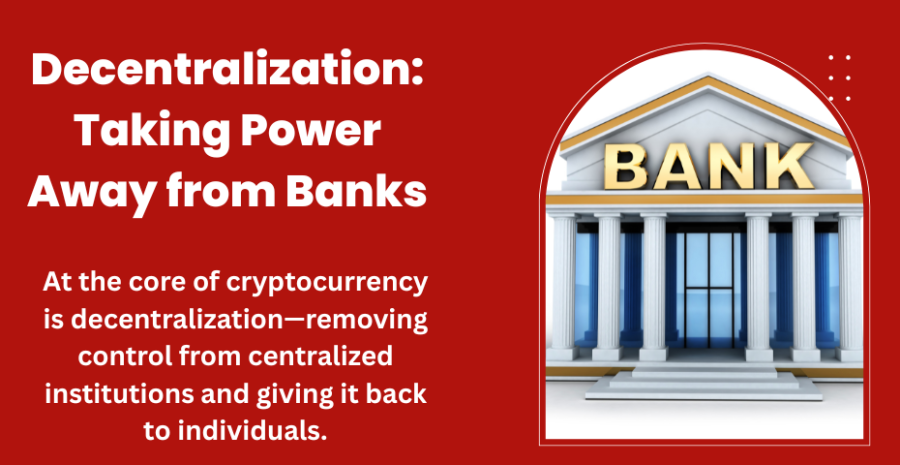
At the core of cryptocurrency is decentralization—removing control from centralized institutions and giving it back to individuals.
Traditional financial systems rely on central banks, clearinghouses, and middlemen who dictate how, when, and where your money moves.
Crypto changes that. With blockchain technology, transactions are verified by a global network of computers, not a single authority.
This peer-to-peer system increases transparency, reduces fraud, and minimizes censorship. People in authoritarian regimes can now move funds freely. Unbanked populations can transact without a physical bank.
And everyday users can finally control their own assets without relying on a third-party institution. Decentralization isn’t just a buzzword—it’s the foundation of a new financial order.
It flips the script, making financial sovereignty possible in a world that has long operated on control and permission.
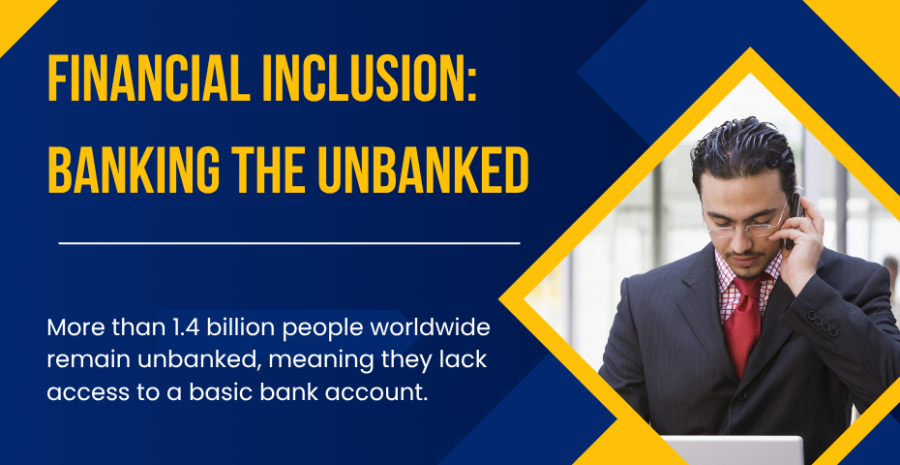
More than 1.4 billion people worldwide remain unbanked, meaning they lack access to a basic bank account.
Whether due to geographic isolation, lack of documentation, or institutional distrust, they are excluded from modern finance.
Cryptocurrency offers a solution. With just a smartphone and internet connection, anyone can create a digital wallet, store value, and transact globally.
Platforms like Stellar, Celo, and even mobile-based apps built on Ethereum or Solana are reaching rural populations, empowering them to receive remittances, launch businesses, and protect wealth from local currency devaluation.
Crypto isn’t just for tech-savvy traders—it’s a bridge for millions to participate in the global economy.
As the infrastructure becomes more user-friendly and accessible, crypto may be the key to ending financial exclusion once and for all.

International money transfers through banks or services like Western Union can take days and cost a small fortune.
For migrant workers sending money home or businesses conducting cross-border trade, these inefficiencies are frustrating—and expensive. Cryptocurrency solves this by enabling near-instantaneous, low-fee transactions across borders.
Stablecoins like USDC and DAI allow for dollar-denominated transfers without needing a bank account.
Bitcoin’s Lightning Network is making micro-transactions a reality. Whether sending $5 or $5,000, crypto reduces fees and delays, while providing transparency through blockchain records.
This makes global trade, freelancing, and international family support far more efficient.
The idea that sending money should be as easy as sending an email is finally becoming a reality, and crypto is the catalyst.
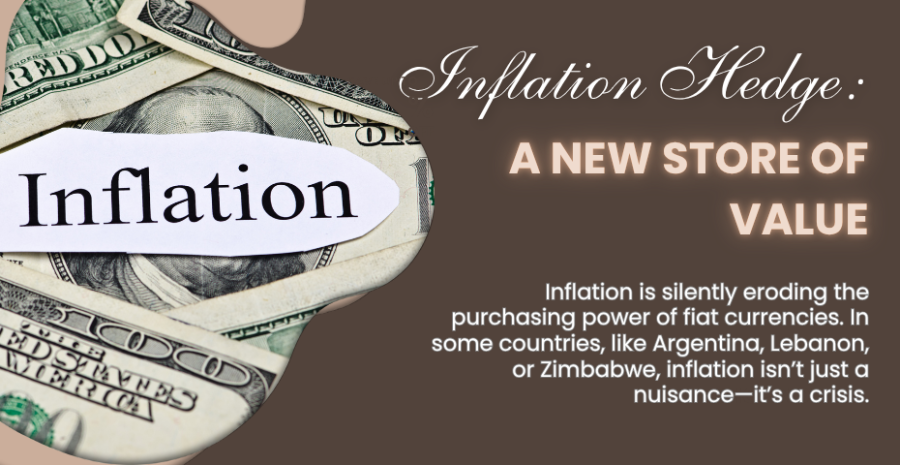
Inflation is silently eroding the purchasing power of fiat currencies. In some countries, like Argentina, Lebanon, or Zimbabwe, inflation isn’t just a nuisance—it’s a crisis.
Cryptocurrency, particularly Bitcoin, has emerged as a potential hedge against this financial decay.
With a fixed supply of 21 million coins and a transparent monetary policy, Bitcoin offers scarcity in a world of unlimited money printing.
As governments continue to debase their currencies through stimulus and debt, more individuals and institutions are looking to crypto as “digital gold.”
While volatile, Bitcoin’s long-term trajectory suggests a new form of value preservation—one not tied to a failing fiat system.
Even large corporations and sovereign wealth funds are exploring crypto reserves as part of their long-term financial strategy.

Crypto isn’t just about money—it’s about programmability. Enter smart contracts: self-executing agreements encoded on a blockchain.
These digital contracts automatically trigger outcomes when specific conditions are met, eliminating the need for intermediaries like lawyers or notaries.
Ethereum pioneered this innovation, but newer chains like Cardano, Solana, and Avalanche are expanding it further.
Use cases include DeFi lending, insurance payouts, NFT royalties, and real estate transactions. Smart contracts reduce costs, increase transparency, and ensure that agreements are executed without bias or delay.
This technology is revolutionizing industries by replacing outdated legal frameworks with code.
As adoption grows, expect more real-world contracts to be “crypto-native,” efficient, and tamper-proof.
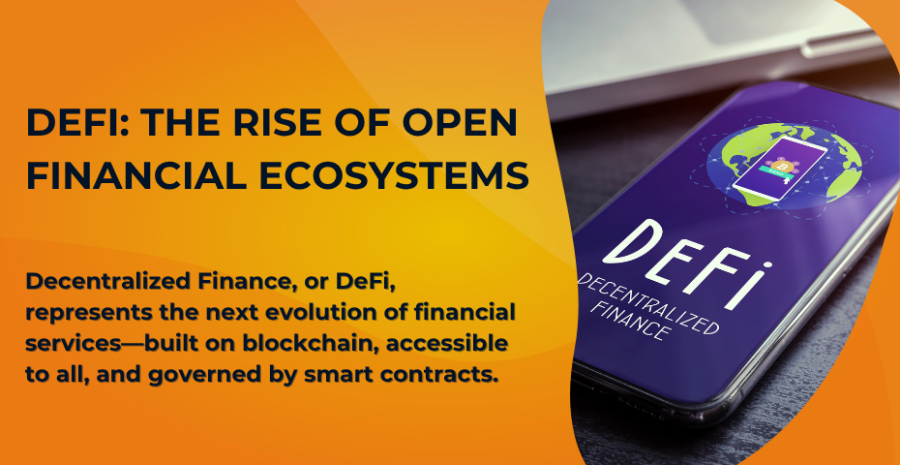
Decentralized Finance, or DeFi, represents the next evolution of financial services—built on blockchain, accessible to all, and governed by smart contracts.
DeFi platforms allow users to lend, borrow, trade, and earn interest without traditional banks. Protocols like Aave, Uniswap, and Compound enable users to access financial tools with nothing more than a crypto wallet.
There’s no paperwork, no credit checks, and no gatekeepers. DeFi is growing fast, with billions locked into protocols and new use cases emerging weekly.
While still risky and experimental, it’s proving that finance can be decentralized, democratized, and transparent.
The same services offered by Wall Street are now being rebuilt in open-source code, offering an alternative system for those disillusioned by banking inefficiencies and centralization.
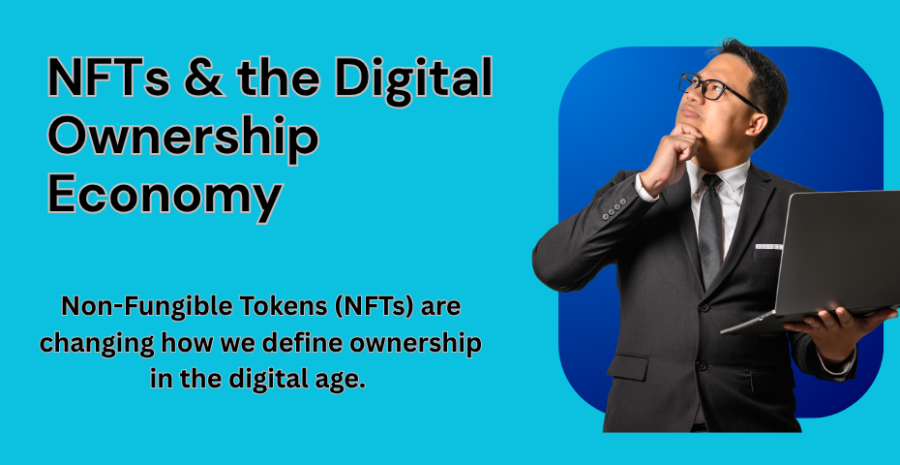
Non-Fungible Tokens (NFTs) are changing how we define ownership in the digital age. From digital art to music, gaming items to virtual real estate, NFTs allow creators to tokenize their work and sell it directly to consumers—no middleman required.
Beyond the hype and headlines, NFTs have opened up new income streams for artists, unlocked utility in gaming, and created digital property rights that were never possible before.
The concept of verifiable, transferable ownership of digital assets is game-changing. As NFTs evolve, they’re being used for memberships, event tickets, identity verification, and more.
The next generation of the internet (Web3) is being built around digital assets and communities—and NFTs are leading the charge.
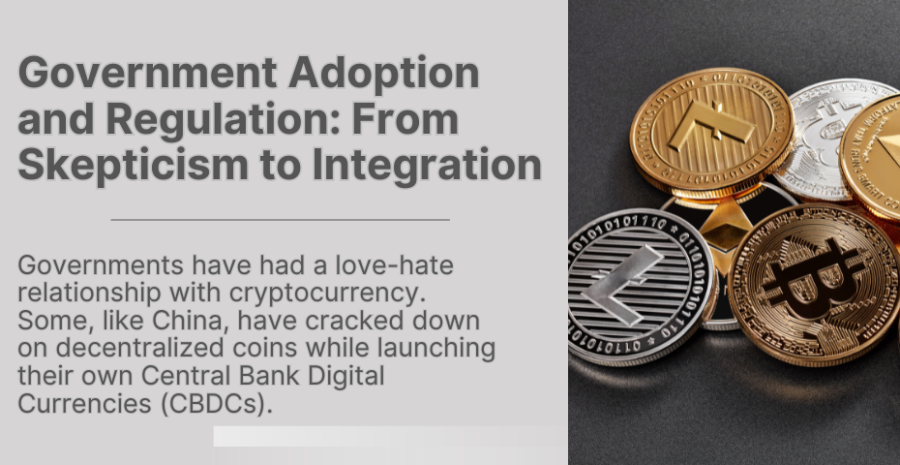
Governments have had a love-hate relationship with cryptocurrency. Some, like China, have cracked down on decentralized coins while launching their own Central Bank Digital Currencies (CBDCs).
Others, like El Salvador and the Central African Republic, have embraced Bitcoin as legal tender. The tide is turning.
Regulators are realizing that banning crypto isn’t realistic—and that integrating it might actually enhance financial systems.
The U.S., EU, and countries across Asia are working on regulatory frameworks to support innovation while protecting consumers. CBDCs are being tested in dozens of countries, signaling that the future of money will blend both decentralized and state-issued systems.
Crypto is no longer fringe—it’s being built into the core of national monetary policy.
(6).png)
Amid the noise of countless crypto projects, Markethive stands out as a truly functional ecosystem built for entrepreneurs.
It’s not just a token—it’s a fully integrated platform that combines inbound marketing tools, social networking, broadcasting, and e-commerce into a single decentralized hub.
At the heart of Markethive lies Hivecoin, the platform’s native cryptocurrency. Unlike many tokens with no real utility, Hivecoin is used to power transactions, reward engagement, and fuel the platform’s internal economy.
Entrepreneurs can earn Hivecoin by contributing to the community, publishing content, or using the system’s marketing tools.
Markethive merges blockchain’s transparency with business practicality, enabling users to operate, earn, and grow their digital presence with real value exchange.
It’s a true Web3 ecosystem where creators aren’t just users—they’re stakeholders. With its commitment to free speech, decentralized control, and monetized engagement, Markethive is paving the way for a new breed of entrepreneur who isn’t dependent on Big Tech monopolies or outdated platforms.
Hivecoin isn’t just speculative—it’s functional, active, and designed for longevity.
We are standing at the threshold of a financial revolution. The way we earn, save, spend, and invest is being radically redefined by cryptocurrency.
No longer confined to the edges of the internet, crypto is becoming the backbone of a new monetary system—decentralized, borderless, inclusive, and digital-first. This shift is as much philosophical as it is technological.
It challenges the very notion of who controls money and what money should do. With tools like DeFi, smart contracts, NFTs, and entrepreneurial ecosystems like Markethive, we are witnessing the construction of a parallel financial universe—one that is not only more efficient but more equitable.
Of course, this transformation comes with challenges—volatility, scams, and the need for better education and regulation. But these are growing pains, not death knells. As infrastructure matures and adoption increases, crypto will become less of an alternative and more of a standard.
From the poorest villages to the wealthiest boardrooms, people are waking up to a world where finance is faster, fairer, and finally free from outdated constraints. Whether you choose to adopt, observe, or resist, one thing is clear: the future of money is being built right now.
And it’s digital, decentralized, and driven by those bold enough to embrace it.
The choice is yours—make it count.
....................................................................................................................................................................................................
About: Andries vanTonder
Over 46 years selfemployed
He is a Serial Entrepreneur, an Enthusiastic supporter of Blockchain Technology and a Cryptocurrency Investor
Find me: Markethive Profile Page | My Twitter Account | My Instagram Acount | and my Facebook Profile.
